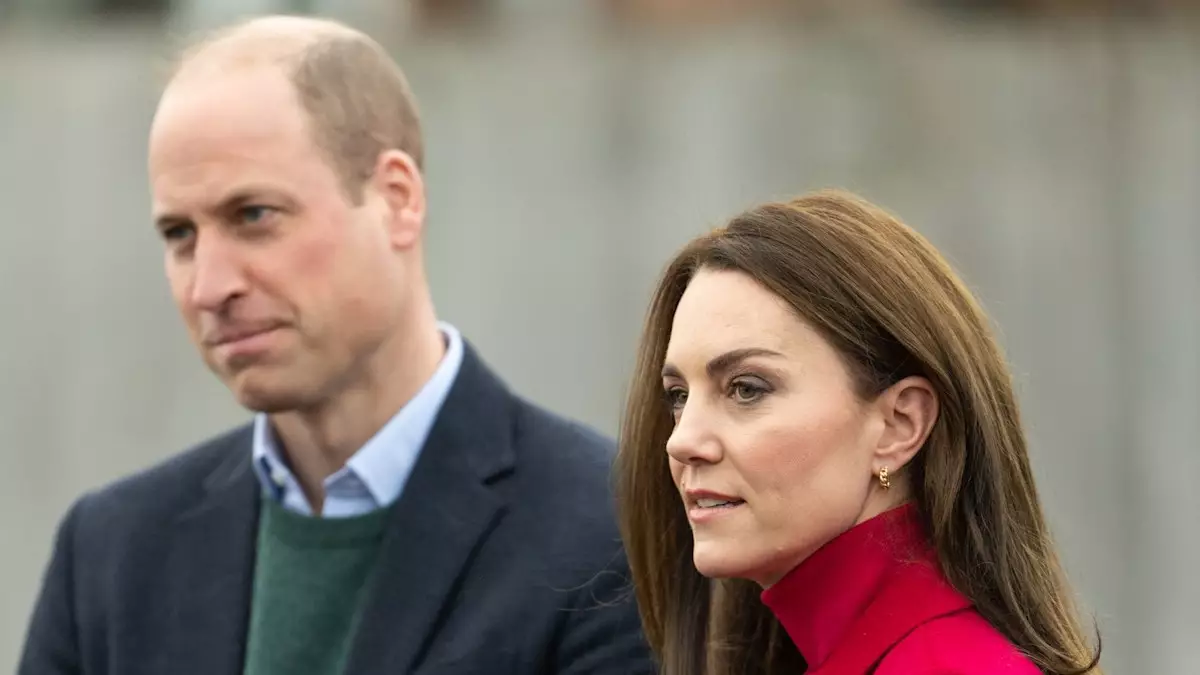In a world that grapples with the haunting scars of the past, the responsibility of education falls not only on academic institutions but also on public figures who have the power to influence societal conversations. Recently, the Prince of Wales, Prince William, boldly stepped into this role by announcing that he and Princess Kate have begun discussing the Holocaust with their eldest son, Prince George. This initiative underscores the growing recognition among contemporary leaders that understanding historical atrocities is crucial for future generations.
During Holocaust Memorial Day commemorations, Prince William engaged with Holocaust survivors, including Alfred Garwood, who survived the Bergen-Belsen concentration camp, and Sabina Kadic-Mackenzie, a survivor of the Bosnian genocide. Their stories serve as poignant reminders of the importance of remembrance, as they provide a bridge from the past to the present. The royal couple’s commitment to educating their children about these dark chapters in history is indicative of a broader movement advocating for the preservation of memory in the face of increasing apathy and forgetfulness in society.
As Prince William noted, conversations about the Holocaust are timely as Prince George begins to comprehend complex historical realities. It is essential for children, especially those in positions of privilege, to recognize the weight of history, prompting a moral responsibility to learn from past atrocities. In an age where misinformation can easily pervade social narratives, having open discussions about the Holocaust is vital for fostering empathy and understanding.
This initiative reflects a parental commitment to instill values of compassion and awareness in their children. These discussions are far more than mere anecdotes about the past; they are an opportunity for critical thinking and forming judgments based on historical context. By choosing to discuss such events, the royal family aligns themselves with communities and organizations that emphasize education on genocide and the dangers of intolerance.
The royal family’s engagement didn’t stop at discussions at home. During the Holocaust Memorial Day events held at the Guildhall, William and Kate met approximately 50 Holocaust survivors. This setting fostered an atmosphere of connection and reflection, where personal narratives took center stage. The emotional reunion between Kate and survivors like Yvonne Bernstein indicated a mutual acknowledgment of the trauma that survivors endured, as well as a celebration of their resilient spirits.
Such interactions play a crucial role in humanizing historical events. They transform abstract numbers and dates into living narratives filled with emotions and experiences. The weight of sharing such stories cannot be overstated, as they ensure that the memories of those who suffered remain alive and are passed on to younger generations. It’s imperative that young individuals hear these accounts, as they confront a society increasingly polarized by divisive ideologies.
Prince William’s reading during the memorial service, which highlighted both the atrocities faced by millions and the courage of survivors to share their stories, resonated with those present. His reference to Princess Alice of Battenberg, who sheltered a Jewish family during WWII, positions the royal family within a historical context, linking their legacy to acts of courage and humanity in times of horror.
Kate’s choice of attire—elegant black trousers paired with a refined black blazer—echoed the spirit of mourning associated with the day. The vintage pearl necklace and earrings gifted by Queen Elizabeth II brought a layer of poignancy to her appearance; pearls, often symbolizing tears, served as a stark reminder of the sorrow intertwined with these commemorations.
As symbols of national unity and heritage, the actions of the royal family carry significant weight. Their commitment to Holocaust education and remembrance stands as a clarion call for others in similar positions to embrace their responsibility. In a world rising with new challenges, the lessons of the Holocaust urge not only reflection but action towards tolerance and understanding.
It is incumbent upon everyone—leaders, educators, and parents—to ensure that moments of darkness are not simply relegated to history books. Instead, they should spark conversations intended to cultivate a future grounded in empathy, respect, and awareness of the fragility of peace. In doing so, we pay homage to the lives lost while dedicating ourselves to the promise of “never again.”

